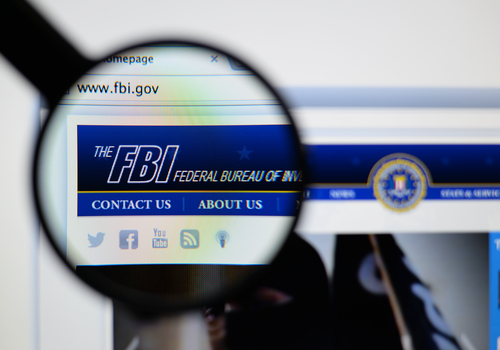
In a recent revelation that has sparked widespread concern among privacy advocates and free speech proponents, FBI agents were recorded during a home visit to Rolla Abdeljawad in Stillwater, Oklahoma, admitting to the routine scrutiny of Americans over their social media activities. This incident, confirmed by Reason.com, underscores the extensive measures law enforcement agencies are taking in monitoring online expressions, raising critical questions about the balance between national security and individual liberties.
The encounter between Abdeljawad and the FBI agents, which was meticulously documented and shared online by her lawyer, Hassan Shibly, highlights a disturbing reality. The agents openly acknowledged that scrutinizing social media posts is an "every day, all day long" operation aimed at ensuring public safety. However, this admission brings to light the intrusive nature of such surveillance practices, which seem to encroach upon the fundamental rights guaranteed by the First Amendment.
BREAKING: The FBI admits to spending all day visiting people's homes about their Facebook posts.
Is the U.S government using intimidation to silence citizens? pic.twitter.com/x3thkg12Kb
— TaraBull (@TaraBull808) March 30, 2024
Abdeljawad's experience is particularly noteworthy as it involved questioning related to her pro-Palestine social media posts, which, while critical of Israel, did not incite violence. This raises significant concerns about the criteria used by law enforcement to target individuals for their online activities and the potential chilling effect on free speech. The involvement of Meta, Facebook's parent company, in preemptively reporting posts to law enforcement further complicates the issue, suggesting a collaborative effort between tech giants and government agencies in policing digital expressions.
The FBI's Oklahoma City office responded to the incident by reiterating its commitment to protecting Americans and upholding the Constitution. They emphasized that investigations are not initiated based solely on First Amendment-protected activities. However, the vague nature of what constitutes a "valid law enforcement or national security purpose" leaves room for interpretation and potential abuse.
Tyrant OBAMA/ Joe Biden’s FBI using intimidation and threats of arrest for critical social media posts.
ELECTION INTERFERENCE!
Viral Videos Appear To Show FBI Agents Visiting Homes Over Social Media Posts;
FBI agent says he does this all day everyday!… pic.twitter.com/rhucCnc01h
— TRUTH NOW ⭐️⭐️⭐️🗽 (@sxdoc) March 31, 2024
Meta's policy on sharing data with U.S. law enforcement under specific legal circumstances adds another layer to the debate. While the company claims to review each request for legal sufficiency, the transparency and accountability mechanisms in place for such exchanges remain unclear. This incident serves as a stark reminder of the power tech companies wield in shaping the landscape of free expression and privacy.
The broader implications of this surveillance practice extend beyond the individual case of Abdeljawad. It signals a growing trend where citizens' online activities are subjected to constant monitoring, potentially deterring individuals from engaging in open and honest discourse for fear of government scrutiny. The delicate balance between ensuring national security and preserving civil liberties appears increasingly skewed towards invasive oversight.
As the conversation around privacy, free speech, and the role of technology companies in surveillance continues to evolve, it is imperative that safeguards are established to protect individuals from unwarranted intrusion. The case of Rolla Abdeljawad serves as a cautionary tale, prompting a reevaluation of the methods employed by law enforcement in the digital age and the need for a more transparent and accountable approach to safeguarding the constitutional rights of all Americans.
In conclusion, the FBI's admission of daily surveillance on Americans' social media activities opens up a Pandora's box of ethical and legal dilemmas. As we navigate the complexities of the digital era, striking the right balance between security and freedom remains one of the most pressing challenges of our time.












